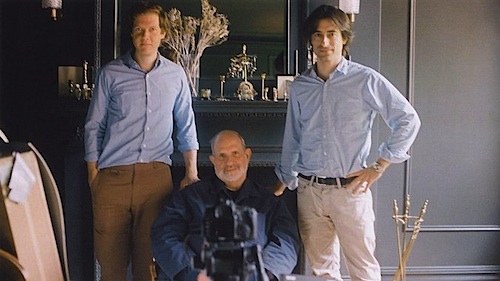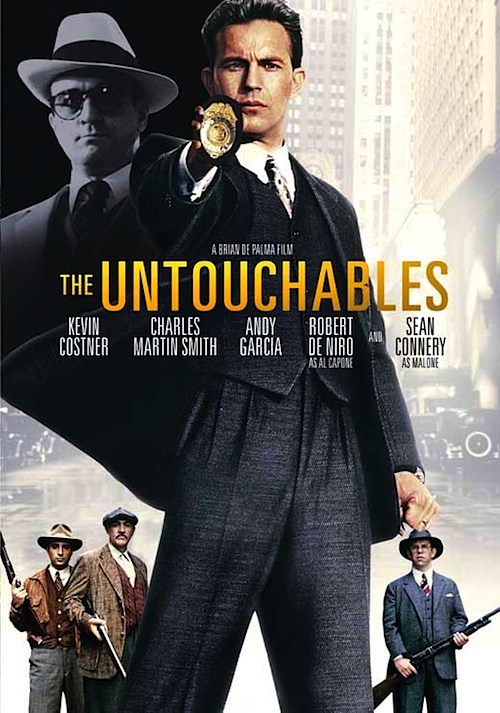
By Joe Bendel. Brian De Palma’s career is marked by distinct streaks of good and bad luck, but he could never complain about his score composers. He worked with John Williams, Ennio Morricone, Pino Dinaggio, Mark Isham (on The Black Dahlia), and most notably Bernard Herrmann. Probably no other director so self-consciously tried to process and build on Hitchcock’s visual kitbag for building suspense, so it is fitting two of Herrmann’s final scores were for De Palma’s psychological thrillers. The brand name director surveys his filmography, film by film, in Noah Baumbach & Jake Paltrow’s De Palma, which screens during the 53rd New York Film Festival.
De Palma sits in a comfortable chair and basically tells us how it all went down. It is a straight forward approach to documentary filmmaking, but his stories have a lot of zing to them, so it largely works. Reportedly, De Palma has been regaling his young colleagues for years, but now they have finally convinced him to do it on camera.
 To an extent, your enjoyment of De Palma the film will depend on how much you appreciate his movies. Still, there are lessons learned here that would apply to any aspiring filmmaker. De Palma does not reminisce about each film’s production dramas. He dishes on their messy development processes, too. He seems to remember exactly how much each and every film was budgeted for, which is a lesson in itself.
To an extent, your enjoyment of De Palma the film will depend on how much you appreciate his movies. Still, there are lessons learned here that would apply to any aspiring filmmaker. De Palma does not reminisce about each film’s production dramas. He dishes on their messy development processes, too. He seems to remember exactly how much each and every film was budgeted for, which is a lesson in itself.
There is also a good deal of time devoted to his student work and early independent films, most of which will be entirely new material for a lot of his casual fans, who may not know De Palma gave Robert De Niro his first featured role in his very independent Greetings. Frankly, you can largely judge what De Palma thinks of a film by the amount of time allotted to it. For instance, he probably talks at greater length about Bruce Springsteen’s “Dancing in the Dark” video than Passion, his unnecessary remake of Alain Courneau’s Love Crime. He is even reasonably forthright revisiting the notorious disaster that was Bonfire of the Vanities.
However, in a glaringly conspicuous (yet convenient) omission, there is no acknowledgement of the controversy surrounding his graphic anti-American anti-war film Redacted. Although it is now generally accepted Arid Uka was motivated by the 2007 film’s violent rape scene, taken out of context and represented on YouTube as actual video footage, when he shot and killed U.S. Airmen Nicholas Alden and Zachary Cuddeback in the Frankfurt Airport. Let’s not mince words. Ducking a controversy of that magnitude is just gutless.
Of course, acknowledging De Palma’s polemics evidently played a significance role in such a senseless tragedy would also be a real downer. Baumbach & Paltrow clearly prefer to keep things light. As a result, De Palma the movie is breezily entertaining. It does indeed make you want to revisit some of his classics (like The Untouchables) or catch up with intriguing early films. Recommended for fans of De Palma and 1970s and 1980s genre filmmaking, De Palma screens this Wednesday (9/30) at Alice Tully Hall, as a special presentation of the 2015 NYFF.
LFM GRADE: B-
Posted on September 29th, 2015 at 9:20pm.